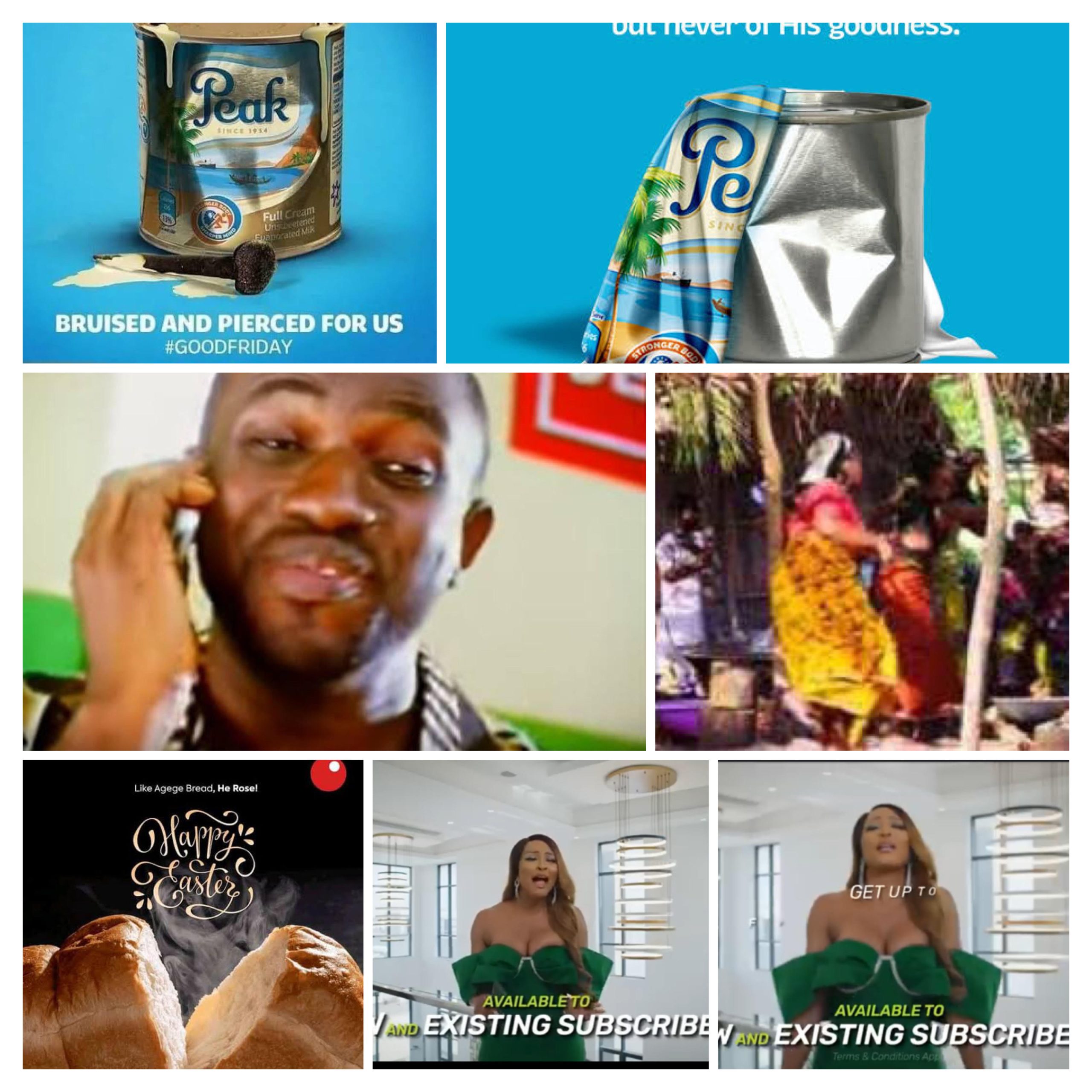By Abimbola Mohammed
Advertisement is a powerful tool used by marketers and agencies to promote brands and position them in the mind of the target audience. Adverts are usually used to help companies generate awareness, expand reach, and make their brand name more recognizable to customers.
According to reports, it is estimated that companies are spending more than $1 trillion annually on marketing worldwide. As much as the role of advertisement cannot be over emphasized, an ad can also cause controversy and turn into a nightmare instead of what the brand wants the ad to do.
According to the words of the great man and one of founding fathers of advertising, Leo Burnett, said: “Make it simple. Make it memorable. Make it inviting to look at, and most of all, make it fun to read.” When an advert fails to do this exact, it becomes a nightmare for the brand.
Nigeria’s IMC industry has seen some incredible examples of TV commercials, print ads and digital ads this year; with many award-winning campaigns being some of the most creative ever. However, some ads have been popular for controversial reasons, with so many complaints accompanying them.
Lots of brands and businesses usually jumped on the Easter season to push out creative campaigns and felicitate with the Christians, both in the digital space, broadcast and print media.
In 2022, Sterling Bank, however, generated furore as a result of its assumed misrepresentation of the resurrection of the Lord Jesus Christ. The advert, which could have been a wonderful greeting to felicitate with the Christians for the Easter celebration, turned out to be in a bad light.
The advert copy which read, “Like Agege Bread, He Rose. Happy Easter”, was seen as a derogatory remark on the Christian faith and insensitive to the Lord Jesus Christ that the people hold sacred.
Following the negative reaction the bank got from the public and Christian Association of Nigeria (CAN) on how the ad was provocative and misrepresented its religion, Sterling Bank took down the ad on all its social media pages and issued a public apology to the concerned party. CAN later called off its sanction and forgave the bank.
Another similar case was the recent digital copy on Peak Milk from the stable of FrieslandCampina Wamco. Its Easter advert became controversial and elicited outrage from the Christian community. The advert, apparently aimed at boosting sales during the 2023 Easter period, was deemed distasteful and disrespectful to the Christian faithful.
The advert featured a photograph of a dented tin of Peak Milk, punctured in two places, with a nail dripping milk beside it. The caption read: “Bruised and Pierced for us”.
Condemning the advert in a statement, General Secretary of CAN, Barrister Joseph Daramola, asked the company to retract the advert, tender an apology to Christians or face legal action and boycott of their products
While tendering an apology, FrieslandCampina WAMCO Nigeria acknowledged the sensitivity of the social media post, stating that it was not intended to minimise the significance of the season or to overly exploit Jesus Christ’s unrivalled sacrifice.
On its part as the apex advertising regulatory body, the Advertising Regulatory Council of Nigeria (ARCON) blamed Peak Milk for releasing to the public a creative material that was not vetted by it.
It would be recalled that a similar scenario played out in 2013, when MTN released a TV commercial titled ‘Mama na Boy’. The commercial starts with a man pacing nervously in front of a labour ward in the hospital. A female doctor comes out and gives the man the good news. His wife has just given birth. The man is overjoyed and calls his mum in the village and delivers the famous line ‘Mama na Boy’. The mum is elated and gives the good news to the villagers. She starts singing a folk song and all the villagers come out for a celebration.
Even though the ad was very entertaining and impactful, it was also controversial as some people reacted negatively to it protesting that it didn’t promote gender equality.
Similarly, the Globacom “Link Your NIN” TV commercial also raised eyebrows because the model used in the advert had her cleavages exposed. The ad was subsequently flagged by ARCON.
According to ARCON, the advertisement was neither submitted nor approved for exposure by the Advertising Standards Panel (ASP), the statutory body charged with the responsibility of ensuring that advertisements conform with the prevailing laws of the federation as well as the code of ethics of advertising in Nigeria.
A controversial advert has a way of giving a brand instant popularity or shooting up an already popular brand, but the down side of it is that it will always trend for the wrong reasons.






Comment
No comments found.